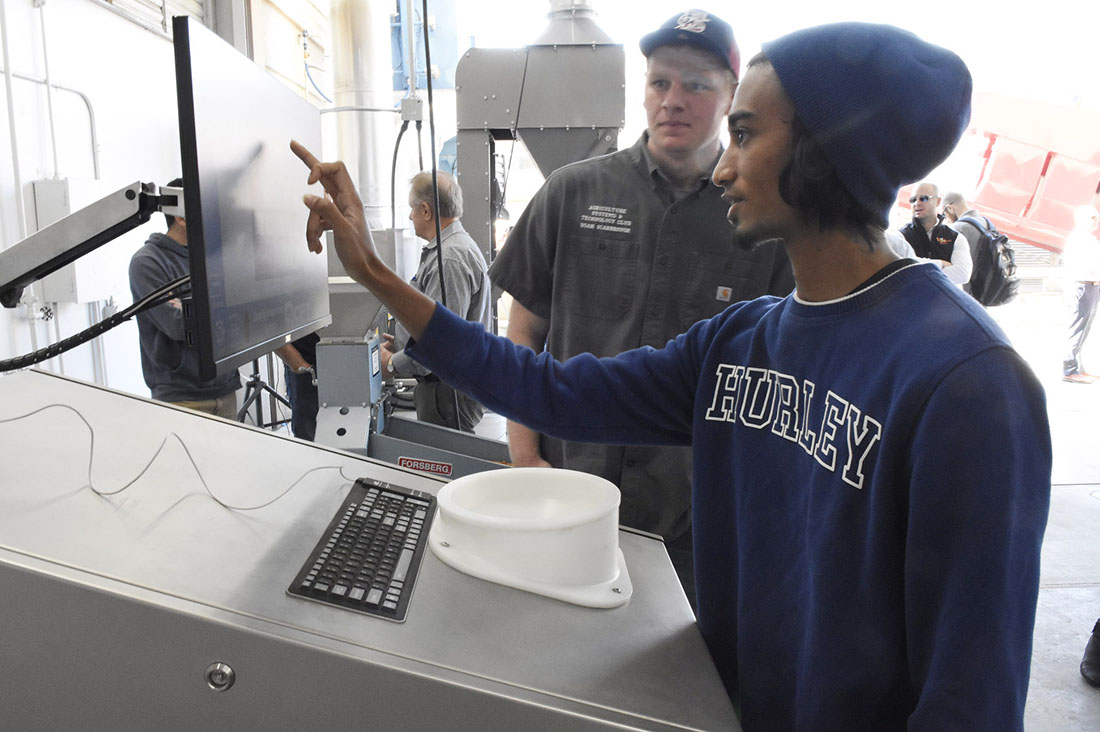Department of Industrial Technology
Courses

The basic break-up of coursework required for the Masters program in Industrial Technology is shown below.
| Courses | Units |
|---|---|
| Core | 21 |
| Electives | 3-6 |
| Culminating Experience | 3-6 |
| Total | 30 |
Core Courses
- IT 216 Production Data Analytics - Data analysis techniques for predictive and forecasting analytics in production operations. Data visualization and reporting for business intelligence and management decision support systems. Supply chain optimization and process analysis though data analysis. Big data characteristics.
- IT 217 Quality Management Techniques - Total quality management principles, techniques, and skills including auditing, design of experiments, quality costs, sampling, and reliability. Quality control charts such as Pareto charts and Run charts.
- IT 219 Applied Sensor Technology - This course covers sensor technology and their applications in business, environmental, and agricultural industry. Students will primarily learn about sensors and controls, functions, and concepts such as sensor data models, control and data acquisition systems for Internet of Things (IoT) technology and smart automation.
- IT 220 Applications of Simulation - Discrete event simulation with emphasis on model building, verification and validation of models, data collection and output analysis. Use of simulation for modeling manufacturing and service systems.
- IT 223 Management of New Technology - Study of the developmental history of technology and its impact on people and their institutions. Topics focus on the consequences of rapid technological change as it relates to education and training, energy demands, and environmental concerns.
- IT 280 Research Methodology - Seminar in research procedures in industrial education and technology; basic bibliography, research form and methods.
- IT 285 Advanced Manufacturing Systems - A comprehensive study of supply chain management techinques. Topics include procurement, supplier management, transportation and logistics, customer relationship, inventory management and forecasting.
Please check the University Catalog for the latest descriptions.
Electives
- IT 218 Scheduling in Manufacturing and Services - Scheduling applications in manufacturing such as job shop scheduling, flexible assembly systems, economic lot scheduling and supply chain scheduling. Service scheduling applications such as workforce, transportation, reservations and timetabling.
- IT 226 Intelligent Robot in Agriculture - Advanced studies of artificial intelligence (AI) including TensorFlow, deep learning, and deep neural network used for robotics. Computer vision and natural language understanding to build self-learning machines with the potential to serve agriculture
- IT 228 Self-Driving Vehicles - Advanced studies of self-driving technologies and the applications in transportation and agriculture. Artificial intelligence principles for autonomous driving with road signs recognition, road data processing and autopilot technologies
- IT 284T Topics in Industrial Technology - Advanced study in technical areas; current industrial practices, developments and trends related to design, materials, and processes.
- IT 286 Applied Spatial Technology - Survey of geo-spatial technologies, e.g. geographical information system and global positioning system. Applications of GIS/GPS, remote sensing, imaging technology, and geo-database in fields of logistics, agriculture, and business. Spatial information management for precision agriculture, agriculture business, food system, and public policy.
The electives must be determined in consultation with the Graduate Coordinator.
Culminating Experience
- IT 298 Project (3 units) - Completion of an approved project appropriate to the candidate's area of specialization involving the development of a physical prototype or other similar professional problem-solving activity with extensive written documentation.
- IT 299 Thesis (6 units) - Preparation, completion, and submission of an acceptable thesis for the Master's degree.
For additional criteria on Projects and Thesis, please check Criteria for Thesis and Project.
Mailing Address:
2255 East Barstow Avenue,
M/S IT9
Fresno, CA 93740-8002
Phone : 559.278.2145
Fax : 559.278.5081